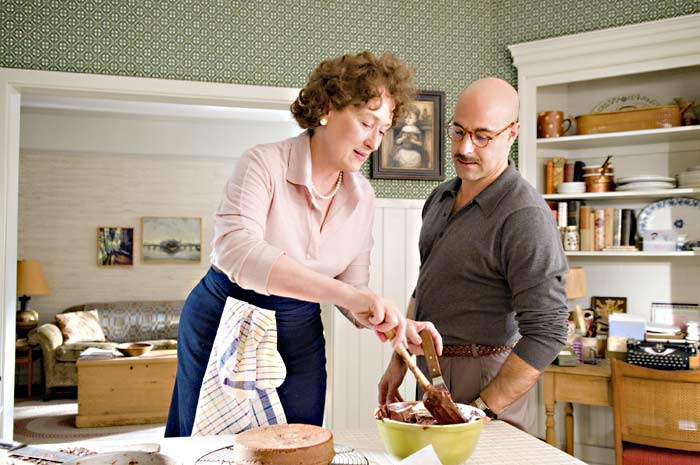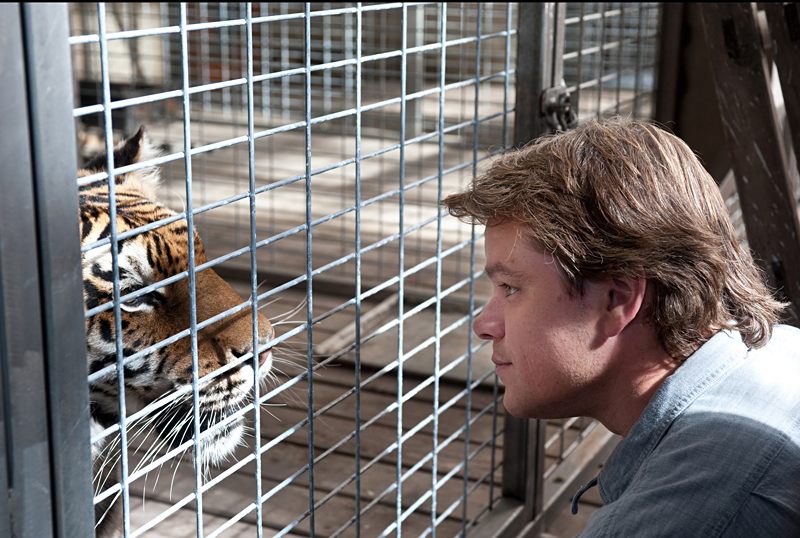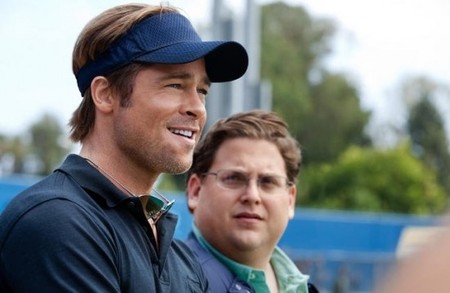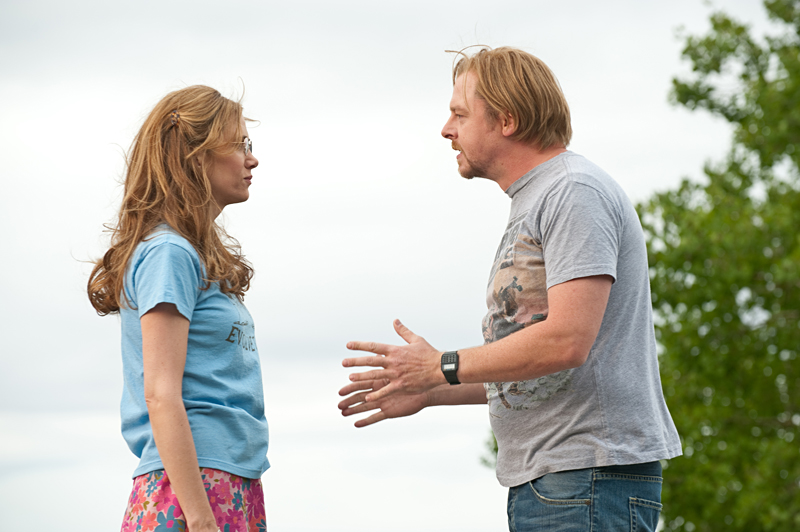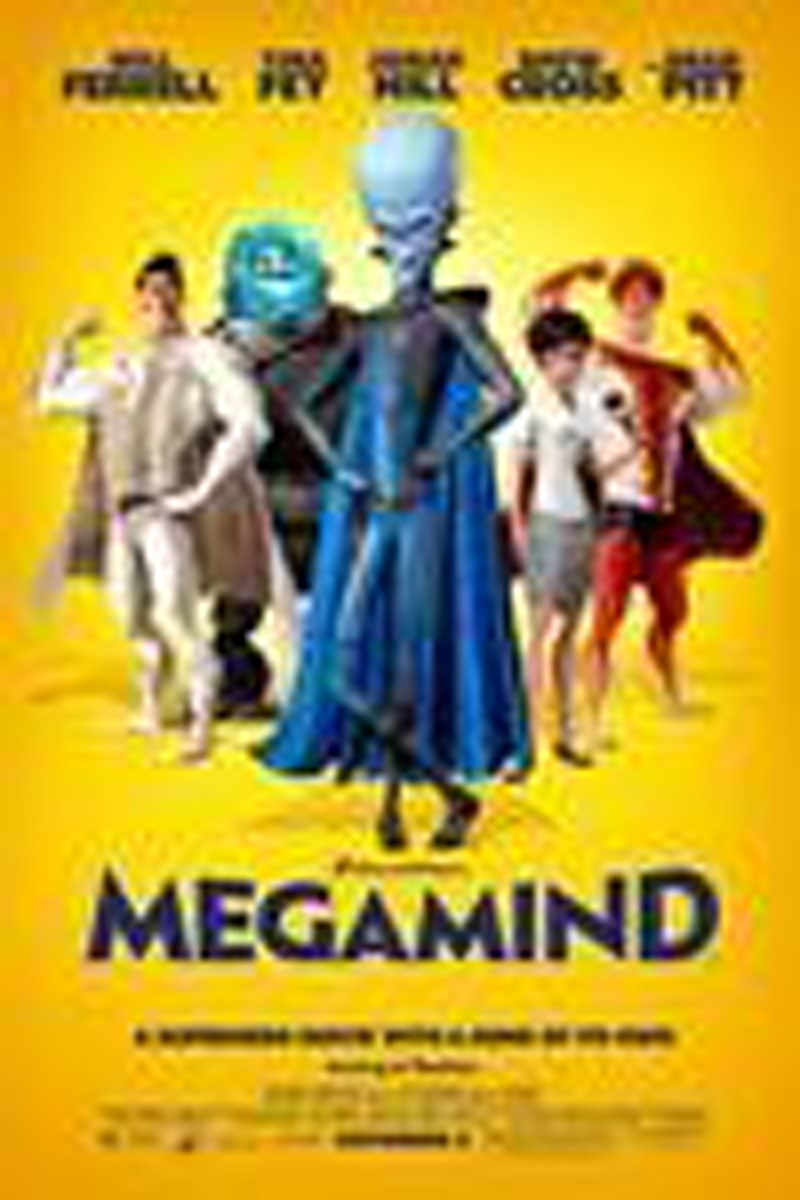It was the best of movies. It was the worst of movies. Which is to say: There’s half a great movie in Julie & Julia—but since Meryl Streep has already appeared in one titled Julia (Fred Zinnemann’s penultimate feature in 1977), perhaps it was merely necessary to tack on the “Julie” half to distinguish Nora Ephron’s butter-basted effort from its Lillian Hellman’s–mayonnaise-covered predecessor. (Sorry. So sorry.) If nothing else, that tortured introduction reveals which half is the great half—the one featuring Streep as Julia Child, but of course, and not the Smithsonian-enshrined, encased-in-amber, forever-in-reruns Julia Child, either, but the toweringly lean and tremendously lustful Julia Child, new to France in the late 1940s and ready to devour everything in sight, even her husband, Paul (Stanley Tucci).
But back to them in a moment—best to skim the film off the film first: in this case, the half of Julie & Julia adapted from Julie Powell’s blog-turned-memoir from which the movie takes its name. The tome is an absolutely delightful read—a literary trifle in which Powell uses Child, and in particular Child’s 1961 cookbook Mastering the Art of French Cooking, to discover “what it takes to find your way in the world,” as she wrote. Yet all Ephron saw in that tale was just another dreary romantic comedy about a woman, played by a slow-simmering Amy Adams, who hates her job (tending to the families of people killed in the World Trade Center attacks—Powell’s office was perched over the gaping wound), hates her friends (climbers as self-obsessed as she), hates her apartment (in Queens over a pizzeria), and escapes into cooking and writing about cooking till she leaves behind her supportive husband, Eric, played by Chris Messina, but only briefly, whew. The book, originally shopped as a stand-alone project, could have made for a scrappy, scrumptious indie—all the outer-borough funk and main-course “fucks” of the book left intact, Bridget Jones doused in béarnaise sauce and vodka gimlets. But Ephron has excised the heart (and gizzard and liver and so on) from Powell’s tale.
Powell deserves better than to serve as an irritating distraction from the main course, but that’s all she is here; at our preview screening, at least, you could feel the audience sag every time the movie cut away from Child to Powell (there were, indeed, audible groans—and not just from the press section). How could the writer-director not see that she had rigged this patently unfair game of Compare and Contrast? How could she not notice the disservice she had done both women by trying to stuff two books into one movie that winds up at once far too short and way too long? Though to ask such questions, I suppose, is to ignore precedent—which is to say, most of Ephron’s efforts as writer-director. No one should expect five-star cooking from the fast-food worker responsible for Lucky Numbers and Bewitched.
Still, if Ephron is to be criticized for treating Powell like a soggy sitcom creation, she (along with Streep) should be celebrated for rendering Child flesh and blood—all passion and pleasure, even during moments of self-doubt. Not in forever has a movie character been this joyful, this playful, this much fun to be around. Her delight is infectious from the first moment we see her, ogling the sights and sounds of Paris upon her and Paul’s arrival there in 1948; the first time we actually meet her, Julia is mmmmmm-ing over the sight and smells and first bite of fish melting in butter. Ephron captures the earthy delights and everyday thrills found both in Child’s cookbook and 2006 autobiography, My Life in France; the filmmaker gets us to positively revel in everything Julia, from the perfect slicing of an onion to the publication of a cookbook a decade in the making to the afternoon “naps” she and Paul would enjoy between feasts. Yes, indeed, Julia Child as sex object!
Streep and Tucci especially are a joy to be around—such pragmatic romantics. Paired again after The Devil Wears Prada, in which Tucci played whipping boy to Streep’s ice queen, they have the rapport of bygone on-screen couples—William Powell and Myrna Loy, maybe, partners in crime. Every slight glance feels absolutely natural, every kiss deeply felt. Perhaps someone will do for Julie & Julia what one enterprising Star Wars fan did for Episode I: The Phantom Menace: releasing a bootleg shorn of that annoyance named Jar Jar Binks and titling it The Phantom Edit. Surely there’s room enough in this world for two Meryl Streep movies named Julia.
